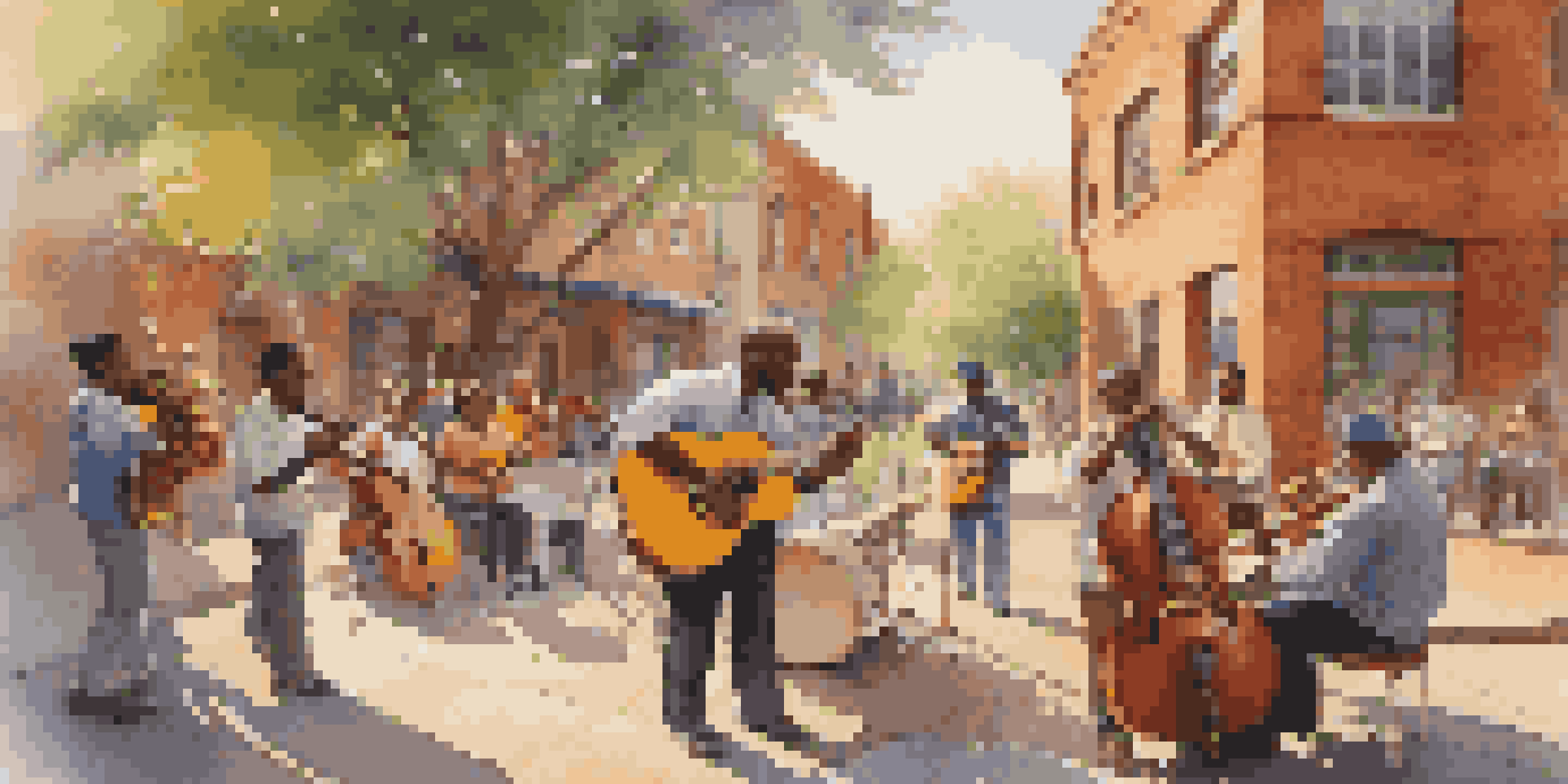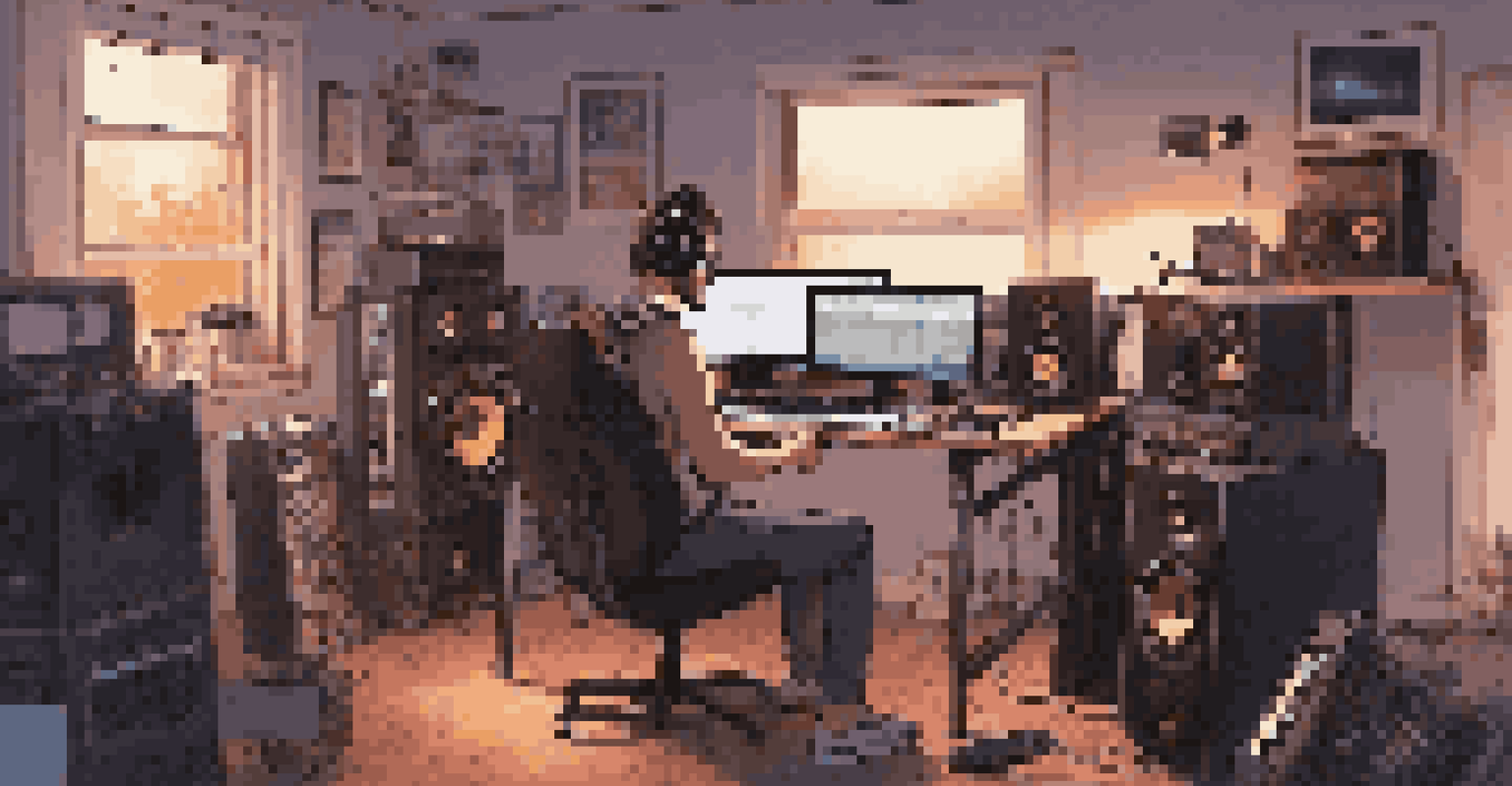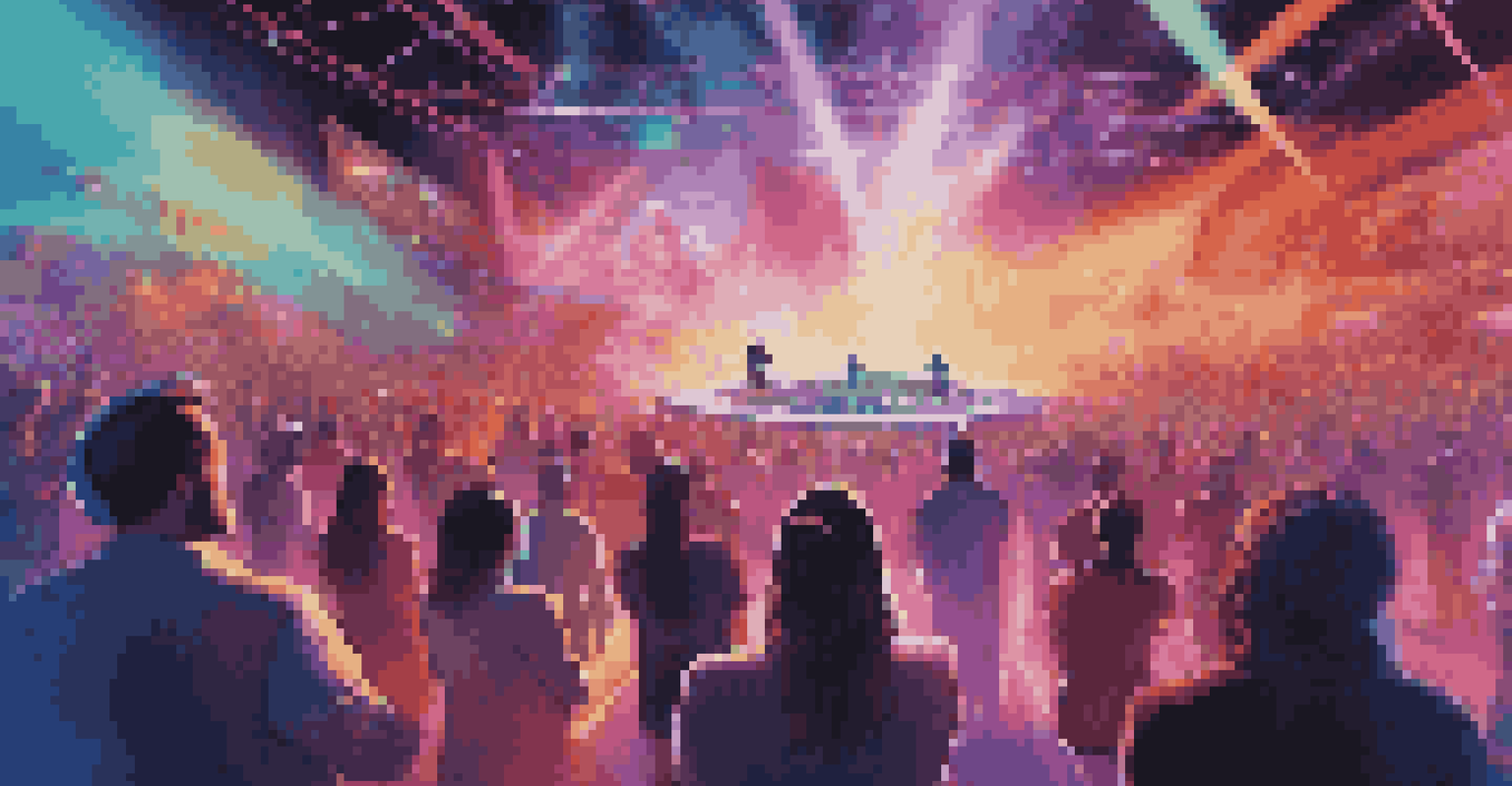The Influence of Technology on Music and Cultural Exchange

The Evolution of Music Consumption in the Digital Age
In the past, music consumption was limited to physical formats like vinyl, cassettes, and CDs. With the advent of digital technology, we now have access to vast libraries of music at our fingertips. Streaming platforms like Spotify and Apple Music have revolutionized how we listen, allowing users to explore genres and artists from around the globe with just a click.
Music is the shorthand of emotion.
This shift not only changes how we consume music but also how artists distribute it. Independent musicians can upload their work to platforms without the need for a record label, democratizing the music industry. This accessibility has led to an explosion of diverse voices and sounds, enriching the global music landscape.
However, this ease of access comes with challenges, such as the struggle for artists to earn revenue in a streaming-dominated world. Despite this, the digital age has empowered many to reach audiences they might never have encountered otherwise, highlighting the duality of opportunity and challenge that technology brings.
Social Media's Role in Music Discovery and Promotion
Social media platforms such as Instagram, TikTok, and Twitter have become vital tools for music promotion and discovery. Artists can share snippets of their work, engage directly with fans, and build communities around their music. This immediate interaction fosters a sense of connection that traditional media often lacks.

For example, TikTok has launched several songs into viral success through user-generated content, allowing songs to gain popularity overnight. This phenomenon illustrates how social media acts as a powerful amplifier for emerging talent, enabling them to reach audiences far beyond their local scenes.
Digital Access Transforms Music Industry
The shift to digital platforms has democratized music distribution, allowing independent artists to reach global audiences without traditional record labels.
Moreover, social media allows for cultural exchange as listeners from different backgrounds share their musical tastes and influences. This creates a rich tapestry of sounds and styles, showcasing the power of technology in bridging cultural divides and promoting global understanding.
How Technology Facilitates Cross-Cultural Collaborations
Technology has made it easier than ever for artists from different cultures to collaborate, transcending geographical barriers. Tools like collaborative software and digital audio workstations allow musicians to work together in real-time, no matter where they are in the world. This opens the door for unique fusions of styles that might not have been possible otherwise.
Technology is best when it brings people together.
For instance, a producer in Los Angeles can collaborate with a vocalist in Nigeria to create a genre-blending track that incorporates elements from both cultures. Such collaborations not only enrich the music but also foster mutual appreciation and understanding between diverse cultural backgrounds.
These cross-cultural projects often result in innovative sounds that reflect the merging of traditions and contemporary influences. As a result, listeners gain access to a more varied musical experience, showcasing the beauty of collaboration in a digitally connected world.
The Impact of Music Technology on Live Performances
The way we experience live music has transformed significantly due to technology. From advanced sound systems to interactive visuals, artists can create immersive experiences that engage audiences on multiple levels. This evolution has redefined what it means to attend a concert, making it more than just a performance but an event.
Moreover, live streaming technology has expanded access to concerts for those unable to attend in person. Fans from around the globe can participate in live events, which helps artists reach wider audiences and maintain their connection with fans. This shift has been particularly prominent during times when physical gatherings are limited, showcasing the adaptability of the music industry.
Social Media Amplifies Music Discovery
Platforms like TikTok enable songs to go viral, fostering a direct connection between artists and fans while promoting cultural exchange.
However, the reliance on technology for live performances raises questions about authenticity and the artist's connection to their audience. Balancing technology with genuine artistry remains crucial in creating experiences that resonate deeply with fans.
The Rise of Music Production Software and Accessibility
Music production software has become increasingly accessible, allowing aspiring musicians to create high-quality music from their own homes. Programs like GarageBand and Ableton Live have democratized music production, enabling anyone with a computer to produce their own tracks. This accessibility has led to a surge in independent artists, each bringing their unique perspectives and creativity to the forefront.
With numerous online tutorials and communities, learning to produce music is more attainable than ever. This shift empowers a new generation of creators who might not have access to traditional recording studios. As a result, we witness a more diverse range of music styles and influences in the industry.
However, the abundance of new music can also lead to saturation, making it challenging for individual artists to stand out. The key lies in leveraging technology not just for production, but also for effective promotion and engagement with audiences.
The Role of Artificial Intelligence in Music Creation
Artificial intelligence (AI) is increasingly finding its place in music creation, offering tools that assist artists in the songwriting and production process. From generating melodies to suggesting chord progressions, AI can serve as a collaborative partner for musicians. This technology can inspire creativity, allowing artists to explore ideas they might not have considered.
While some fear that AI could replace human creativity, many musicians view it as an ally. For example, AI-driven platforms can analyze vast amounts of music data, helping artists understand trends and preferences. This insight can guide their work, making their music more relevant to current audiences.
AI Enhances Music Creation Process
Artificial intelligence assists musicians in songwriting and production, offering tools that inspire creativity and analyze audience trends.
The fusion of AI and music also raises interesting questions about authorship and originality. As technology continues to evolve, so too will our understanding of what it means to create music in a digital age, blending human emotion with computational precision.
The Future of Music and Cultural Exchange Through Technology
As we look ahead, the future of music and cultural exchange will undoubtedly be shaped by ongoing technological advancements. Innovations such as virtual reality concerts and immersive audio experiences promise to redefine how we engage with music. These developments will continue to break down barriers, allowing for even more profound connections between artists and audiences worldwide.
Moreover, as global connectivity increases, we can expect further cultural exchange through music. Artists will continue to draw inspiration from diverse influences, resulting in new genres and collaborations that reflect our interconnected world. This evolution will not only enrich the music industry but also promote understanding and appreciation across cultures.

Ultimately, the influence of technology on music is a dynamic and ever-evolving journey. Embracing this change while valuing the essence of cultural exchange will ensure that music remains a powerful medium for connection, expression, and shared experiences.